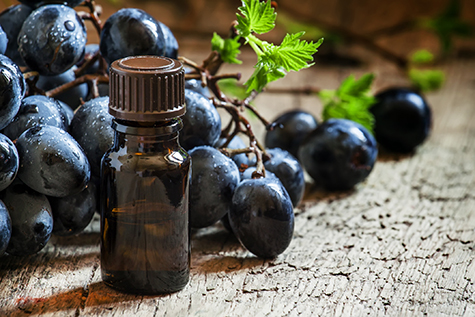Can Grape Seed Extract Prevent Colon Cancer?

Research conducted at Pennsylvania State University indicates that grape seed extract and resveratrol, which occurs in red grapes, can suppress colon cancer stem cells. The study was reported in BMC Complementary and Alternative Medicine.
“We are particularly interested in targeting stem cells because, according to cancer stem-cell theory, cancerous tumors are driven by cancer stem cells,” explained coauthor Jairam K.P. Vanamala, who is an associate professor of food sciences at Penn State. “Cancer stem cells are capable of self-renewal, cellular differentiation and maintain their stem cell-like characteristics even after invasion and metastasis.”
In human colon cancer stem cell cultures, a combination of resveratrol and grape seed extract suppressed proliferation and other factors in a manner similar to the nonsteroidal anti-inflammatory drug sulindac, which has reduced tumors in humans. In mice with induced colon cancer, resveratrol and grape seed extract suppressed tumor incidence by more than 50%–an effect that was also comparable to that associated with sulindac. The combined effect of resveratrol and grape seed extract was associated with greater cancer stem cell suppression than either compound alone. “This also connects well with a plant-based diet that is structured so that the person is getting a little bit of different types of plants, of different parts of the plant and different colors of the plant,” stated Dr Vanamala, who is also a faculty member at the Pennsylvania State University Hershey Cancer Institute. “This seems to be beneficial for not only promoting bacterial diversity, but also preventing chronic diseases and eliminating the colon cancer stem cells.”
“The combination of resveratrol and grape seed extract is very effective at killing colon cancer cells,” he concluded. “And what we’re learning is the combination of these compounds is not toxic to healthy cells.”
